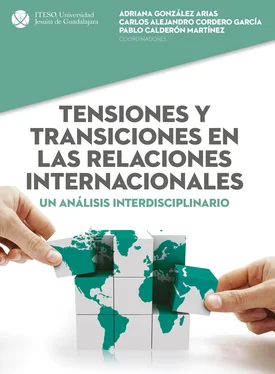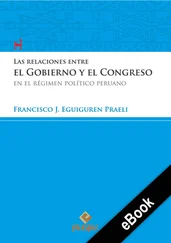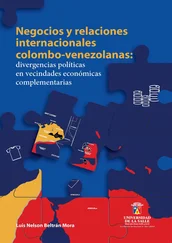Bell, D.A. (2 de octubre de 2015). Troubles for the ‘China Model’. The Wall Street Journal. Recuperado de http://www.wsj.com/articles/troubles–for–the–china–model–1443795466
Bloomberg (9 de julio de 2016). China’s GDP is managed, India’s shows incompetence, says Ruchir Sharma. The Economic Times. Recuperado de http://economictimes.indiatimes.com/news/economy/indicators/chinas–gdp–is–managed–indias–shows–incompeten ce–says–ruchir–sharma/articleshow/53127702.cms
Bresser Pereira, L.C. (2010). Globalization and competition: why some emergent countries succeed while others fall behind. Cambridge: Cambridge University Press.
Bridge, G., McCarthy, J. & Perreault, T. (Eds.) (2015). The Routledge handbook of political ecology. Londres / Nueva York: Routledge.
Calderón–Contreras, R. (2013). Ecología política: hacia un mejor entendimiento de los problemas socioterritoriales. Economía, Sociedad y Territorio, 13(42), 561–569. Recuperado de http://www.scielo.org.mx/pdf/est/v13n42/v13n42a10.pdf
Chan, G., Lee, P.K. & Chan, L. (2008). China’s environmental governance: the domestic–international nexus. Third World Quarterly, 29(2), 291–314. doi:10.1080/01436590701806863.
Cheng, L. (2014). Introduction: a champion for chinese optimism and exceptionalism. En H. Angang, Y. Yilong & W. Xing (Eds.), China 2030. Londres: Springer.
Chen, M. & Goodman, D. (2011). El modelo chino: un país, seis autores. México y la Cuenca del Pacífico, 14(40), 13–42.
China File (2 de septiembre de 2015). The China economy: what lessons for Africa? China File. The African Project. Recuperado de https://www.chinafile.com/library/china–africa–project/china–economy–what–lessons–africa
Cohen, J. & Easterly, W. (Eds.) (2009). What works in development?: thinking big and thinking small. Washington: Brookings Institution Press.
Colley, C. (31 de enero de 2009). China’s reforms at 30 and the “Beijing Consensus”. Pambazuka News. Recuperado de http://www.pambazuka.org/global–south/china%E2%80%99s–reforms–30–and–%E2%80%9Cbeijing–consensus%E2%80%9D
Danzhi, Y. (21 de febrero de 2017). US warship patrols raise tensions in South China Sea: China Daily Columnist. The Straits Times. Recuperado de http://www.straitstimes.com/asia/east–asia/us–warship–patrols–raise–tensions–in–south–china–sea–china–daily–columnist
Das, D.K. (2015). An enquiry into the Asian growth model. Nueva York / Londres: Palgrave Macmillan.
Easterly, W. (13 de octubre de 2013). The ideology of development. Foreign Policy. Recuperado de http://foreignpolicy.com/2009/10/ 13/the–ideology–of–development/
Economy, E.C. (2011). Roots of protest and the party response. Council on Foreign Relations. Recuperado de http://i.cfr.org/content/ publications/attachments/Economy.Testimony.2.25.11.pdf
Escobar, A. (2005). El “postdesarrollo” como concepto y práctica social. En D. Mato (Coord.), Políticas de economía, ambiente y sociedad en tiempos de globalización. Caracas: Facultad de Ciencias Económicas y Sociales–Universidad Central de Venezuela.
Escobar, A. (22 de marzo de 2012). Post–extractivismo y pluriverso. ALAI: Agencia Latinoaméricana de Información. Recuperado de http://www.alainet.org/es/active/53567
Foizee, B. (28 de junio de 2016). China–Africa partnership finds reciprocity. Modern Diplomacy. Recuperado de http://moderndiplomacy.eu/index.php?option=com_k2&view=item&id=1537:china–africa–partnership–finds–reciprocity&Itemid=868
Foro Económico Mundial (2002). The global competitiveness report 2001–2002. Recuperado de http://www.eldis.org/go/home&id=24 808&type=Document#.WGrbOZK71E4
Gardels, N. (17 de octubre de 2008). Stiglitz: the fall of Wall Street is to market fundamentalism what the fall of the Berlin Wall was to communism. The Hufftington Post. Recuperado de http://www.huffingtonpost.com/nathan–gardels/stiglitz–the–fall–of–wall_b_126911.html
González García, J. (2012). El proceso de reforma económica de China: nuevas enseñanzas para México. En J. L. Calva (Coord.), Estrategias económicas exitosas en Asia y en América Latina. México: Consejo Nacional de Universitarios / Juan Pablos Editor.
Gowan, P. (2009). Crisis in the heartland: consequence of the new Wall Street system. Estudios Avançados, 23(65), 49–72. Recuperado de http://www.scielo.br/pdf/ea/v23n65/en_a04v2365.pdf
Hong, Z. (2015). The price of China’s economic development: power, capital, and the poverty of rights. Kentucky: The University Press of Kentucky.
Horesh, N. (15 de noviembre de 2016). The growing appeal of China’s model of authoritarian capitalism, and how it threatens the West. South China Morning Post. Recuperado de http://www.scmp.com/comment/insight–opinion/article/1840920/growing–appeal–chinas–model–authoritarian–capitalism–and–how
Hsu, J.Y. (2015). China’s development: a new development paradigm? Third World Quaterly, 36(9), 1754–1769. doi: 10.1080/01436597. 2015.1046985.
Hsu, S. (4 de enero de 2016). China’s macro prudential assessment system. The Diplomat. Recuperado de http://thediplomat.com/2016/01/chinas–macro–prudential–assessment–system/
Hung, H. (2016). The China boom: why China will not rule the world. Nueva York: Columbia University Press.
Hunt, K. (2 de junio de 2017). China, el gran vencedor de la retirada de EE.UU. del Acuerdo de París. cnn en español. Recuperado de https://cnnespanol.cnn.com/2017/06/02/china–el–gran–vence dor–de–la–retirada–de–ee–uu–del–acuerdo–de–paris/
Jefferson, G.H. (2008). How has China’s economic emergence contributed to the field of economics? En J. Brada, J.P. Wachtel & D. Tao Yang (Eds.), China’s economic development. Nueva York / Londres: Palgrave Macmillan.
Jiang, Y. (2011). Rethinking the Beijing Consensus: how China responds to crisis. The Pacific Review, 24(3), 337–356. doi: 10.1080/ 09512748.2011.577234.
Justo, M. (28 de marzo 2016). Cómo funcionan los 28 bancos que dominan la economía global. BBC. Recuperado de http://www.bbc.com/mundo/noticias/2016/03/160325_economia_mecanismos_hidra_financiera_mundial_mj
Kennedy, S. (2010). The myth of the Beijing Consensus. Journal of Contemporary China, 19(65), 461–477. doi:10.1080/10670561003666087.
Kilic, B. et al. (2015). Transition to professional life through experiential learning: an undergraduate course. En V. Taras & M.A. González–Pérez (Eds.), The Palgrave handbook of experiential learning in international business. Londres: Palgrave Macmillan.
Kurlantzick, J. (21 de marzo de 2013). Why the ‘China Model’ Isn’t Going Away. The Atlantic. Recuperado de http://www.theatlantic.com/china/archive/2013/03/why–the–china–model–isnt–going–away/274237/
Larraín, B.F. & Sachs, J.D. (2002). Macroeconomía en la economía global. Buenos Aires: Pearson.
Lee, K., Jee, M. & Eun, J. (2011). Assessing China’s economic catch–up at the firm level and beyond: Washington Consensus, East Asian Consensus and the Beijing Model. Industry and Innovation, 18(4), 487–507. doi: 10.1080/13662716.2011.583463
Leff, E. et al. (2002). Más allá del desarrollo sostenible. La construcción de una racionalidad ambiental para la sustentabilidad: una visión desde América Latina. En E. Leff, I. Pisant & P. Romeo–Lankao (Coords.), La transición hacia el desarrollo sustentable. Perspectivas de América Latina y el Caribe. México: INE / PNUMA / UAM–X.
Li, X., Broadsgaard, K.E. & Jacobsen, M. (2009). Redefining Beijing Consensus: ten economic principles. China Economic Journal, 2(3), 297–311. doi: 10.1080/1753896090352953.
MacFarquhar, R. & Schoenhals, M. (2014). De Mao a Deng. En E. Anguiano & U. Pipitone (Eds.), República Popular de China: de la utopía al mercado. México: CIDE.
Читать дальше












